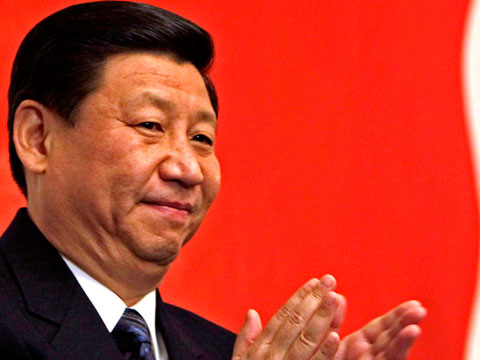Freedom House, a prominent US-based human rights organization which monitors and rates various global freedoms, has found that under President Xi Jinping repression has increased in China. Of the 17 categories assessed by Freedom House in their China Report, repression has increased in 11 since 2012 when Xi took power, indicating an overall intensification of repression.
“The current leaders appear to be increasing repression, expanding the targets and reach of the security agencies even more than their predecessors,” wrote Sarah Cook, senior research analyst for East Asia at Freedom House and author of the report.
The categories in which repression had increased since Xi took power in 2012 include grassroots rights activists, online opinion leaders, ordinary internet users, civic-minded businesspeople, CCP cadres, labor leaders, scholars and professors, print and television journalists, Christians, Buddhist Tibetans, and Muslim Uighurs.
Since 2012, the Chinese government has begun to targeted new entities as well, Cook found. CCP authorities conducted detention, imprisonment, public humiliation and physical abuse on individuals who had previously been safe in the nation, including a pastor from a state-sanctioned church, a highly popular businessman, an acclaimed lawyer, an internet entrepreneur, and several middle class professionals. Party cadre had also suffered increased physical abuse — to the point of death — Freedom House reported.
Five categories maintained a level of repression consistent with pre-2012 findings: political dissidents, human rights lawyers, formal nongovernmental organizations (NGOs), protest participants, and Falun Gong practitioners.
Freedoms in China increased in only one category, according to Freedom House: petitioners, and the increase was minor, involving the abolition of the “reeducation through labor” camp system.
Freedom House noted that particularly prevalent in China since Xi took office was the incidence of religious persecution. Falun Gong adherents, Muslim Uighurs and Tibetan Buddhists were more likely than other classes of people to suffer prison sentences of over 10 years, systemic torture and death while in custody.
The Chinese government has shifted tactics since Xi entered office, Freedom House found. The government began using less overtly political charges — instead using public assembly- and disturbance-related charges for arrests. Bribery, illegal business offences and prostitution were also used against politically-involved actors in China, including journalists, according to the report.
The CPC also increased it’s use of short detention terms and high monetary fines, and revived televised forced confessions.
“On the one hand, there seems to be a greater emphasis on more formal types of punishment — such as administrative detention, brief criminal detention, and full prosecutions — and on punishments that discredit or humiliate the target, most likely a bid to enhance the legitimacy of the crackdown. On the other hand, this has not translated into an actual reduction in the use of extralegal detention, since the abolition of the discredited RTL system has led to the reported proliferation of less visible alternative facilities,” wrote Cook in the report.
“Repression has increased under the new leadership, yet fear of the regime appears to be diminishing,” she concluded.
The data from which Freedom House completed their study included that from their own interviews (conducted for the purposes of their research), media reports, Chinese human rights groups, the China Labor Bulletin, the Duihua Foundation and the Congressional-Executive Commission on China.
The report, “The Politburo’s Predicament,” was completed by Sarah Cook and was published on the Freedom House website.
By James Haleavy
